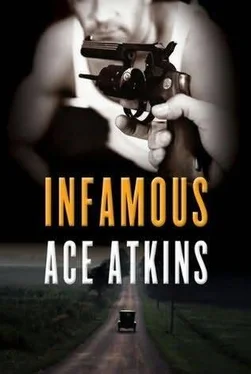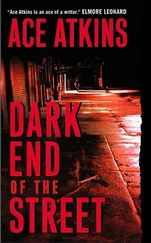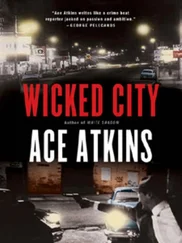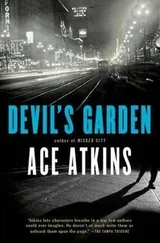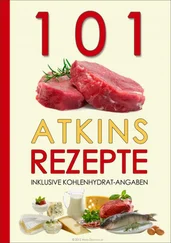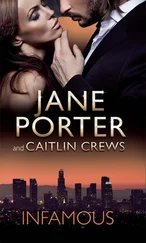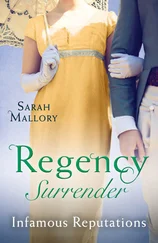She checked her watch. This drop was as slow as Christmas.
Blondell was on the street now in a fine French number, scarf knitted gaily at her throat, watching some poor bastard stoop to his knees to pick up a discarded cigarette. She grabbed the man’s shoulder as if in some ballet and lit her own fresh cigarette with his and gave the poor bastard the new one. I don’t know if he deserves a bit of sympathy, / Forget your sympathy. Now, that was class. That’s the kind of rich gal that Kathryn Kelly would be. She’d never forget hard times. Remember my forgotten man, she sang. You had him cultivate the land; / He walked behind a plow, / The sweat fell from his brow, / But look at him right now!… Blondell caressed the lamppost, holding on like the earth was unstable, and moved through the whole moody dream, thinking about those forgotten men, bastards who’d fought and bled in the war and now marched through soup kitchens and breadlines, as she let go of the post. She placed both hands on her left hip, that slight cock of the hip getting Kathryn thinking. She could do that, she could hold that power without the post. And once, he used to love me, / I was happy then; / He used to take care of me, / Won’t you bring him back again? / ’Cause ever since the world began, / A woman’s got to have a man; / Forgetting him, you see, / Means you’re forgetting me…
Nuts to that.
She checked her watch.
It was time.
WHEN THE TELEPHONE RANG AT A QUARTER TILL SIX, GUS JONES picked up the receiver while Kirkpatrick paced the hotel room.
“Who’s talking?” asked a man with a raspy voice.
“Kincaid,” Jones said.
“This is Moore,” the man said. “You get my wire?”
“I did.”
“Well,” the man said, pausing, “are you ready to close the deal?”
“Should be, if I knew that I were dealin’ with the right parties.”
“You ought to know by now,” the man said. “Listen now and follow these instructions. Take a Yellow Cab, drive to the Hotel La Salle, get out, take the suitcase in your right hand, and start walking west.”
“I figured on taking the suitcase.”
“Who is this?”
“I’ll be there at six-twenty,” Jones said. “I have a friend who came up here with me-I figured on bringing him along.”
“Hell, no,” the man said. “We know all about your friend, we saw that fat old man on the train last night. You come alone and unarmed. You got me? We get wind otherwise and Urschel’s dead.”
The phone rang off and the operator came on the line. Jones hung up.
“What did they say?” Kirkpatrick asked.
“They spotted me on the train.”
“Hot coffee,” Kirkpatrick said. “I knew it. I just knew it.”
“Cool your britches,” Jones said, reaching for his suit jacket and slipping into it. He placed some.45 bullets in his pants pocket and checked the load in the cylinder. “I’ll be right behind you. Grab the bag and take a Yellow Cab to the Hotel La Salle. That ’s south from here. Once you get there, start walking west.”
“Which way is west?”
“Ask the doorman.”
Kirkpatrick nodded and felt for the.38 he’d tucked into his trousers. Jones looked at him and reached out for the gun with his right hand. Kirkpatrick took a breath and then passed it over.
“Just walk,” Jones said. “And don’t look back. Just keep walking till they make contact. I’ll be behind you. Give ’em what they want. Don’t negotiate and don’t try to be a hero. Just hand over the money.”
“And then what?”
“We pray these moneygrubbing bastards are honest men.”
YOU COULDN’T MISS THE SON OF A BITCH. IT WAS THE SAME AS watching a drunk man trying to walk straight; they do everything cockamamy. And here was Mr. E. E. Kirkpatrick, executive of Tom Slick Enterprises, trying to act normal. He strolled along the boulevard on a hot Sunday evening with that goddamn beautiful Gladstone grip. Kathryn even loved the color, a light butternut brown. She thought she could even smell the leather from the open window in the big Cadillac, scrunched down in the backseat that would fit four fat men, the Thompson she hocked her life to buy clutched in her arms in case there was trouble. Across the street, in a stolen Chevrolet, Albert Bates had a rifle poked out a side window. And George was in an alley, waiting for Albert to bump the lights, and then he’d move down Linwood Street, down that tony row of dress designers and shoe shops and hatmakers and a dozen places Kathryn wanted to visit, to make contact with the sucker.
She knew this would work out from the first time she’d read the Urschels’ wedding announcement. They went to Saint Louis or somewhere for their honeymoon and they both shared some children and all that tra-la-la. But what she read was “Come and get me.” Kirkpatrick wasn’t twenty paces from the hotel when he set down the suitcase and reached into his pocket for a cigarette. Head skyward and cigarette upturned, he struck a match and glanced around him, lighting it, inhaling and taking in the scene.
Kathryn took a breath, waiting for fat-faced detectives with bad shoes and G-men with bullhorns and billy clubs to come out from the sewers.
But nothing happened as she watched the big, broad back of George, in a two-tone summer shirt and tie, wearing two-tone shoes and a fashionable Panama tilted into his eyes, strolling along in the opposite direction, growing closer to Kirkpatrick, who was trying to remain cool and low-key. She could almost see the bastard shaking.
George passed by the Cadillac, and, with nothing to it, gave her a wink.
Five feet from Kirkpatrick, George R. Kelly said: “I’ll take that grip.”
Goddamn, she loved him. She loved that smooth, honeyed way he gave directions. I’ll take that grip … She’d remember that forever.
Kirkpatrick was frozen, staring at him. Kathryn leaned into the window and poked the barrel of the gun out of the car, finger on the trigger, teetering over the edge so that nobody could see it even if they were walking close.
“Hurry up,” her husband said.
“How do I know you’re the right party?”
“Hell, you know damn well I am.”
“Two hundred grand is a lot of money,” Kirkpatrick said. She could tell his mouth was dry when his voice cracked a bit. “We are carrying out our part of the agreement to the letter. What assurances have we that you’ll do what you promise?”
“Don’t argue with me,” George said, nodding to a row of cars across the street. “The boys are waiting.”
“When can we expect Mr. Urschel home?” he asked. “I’m going back to the hotel to telephone his wife. What shall I tell her?”
“You shall tell her that this is money well spent.”
Kirkpatrick set the bag at George’s two-tone shoes.
George bent down and grabbed the handle, and as he reached for it Kathryn shuddered, tongue moving across her upper lip and tasting her sweat.
“Wait,” Kirkpatrick said. “ Wait one moment . You tell me definitely what I can say to Mrs. Urschel.”
“He’ll be home within twelve hours,” George said, the suitcase in his right hand. “Now, you turn and walk back to the La Salle and don’t look back. Whatever you do.”
George remained on the sidewalk for a good ten paces and then turned back to the Cadillac, Kathryn crawling over the front seat into the driver’s side and cranking the big sixteen cylinders, both of ’ em watching Kirkpatrick till he disappeared from view. She pulled out onto Linwood and then down to Harrison Street and kept on going south till they found the highway, and she drove for a good six hours, white-knuckled and laughing, with a big, fat moon-a “lucky moon,” is what she’d call it-overhead. They only stopped for gasoline and oil, and a couple of sandwiches and pickles wrapped in paper, ice-cold Coca-Colas in small green bottles.
Читать дальше
